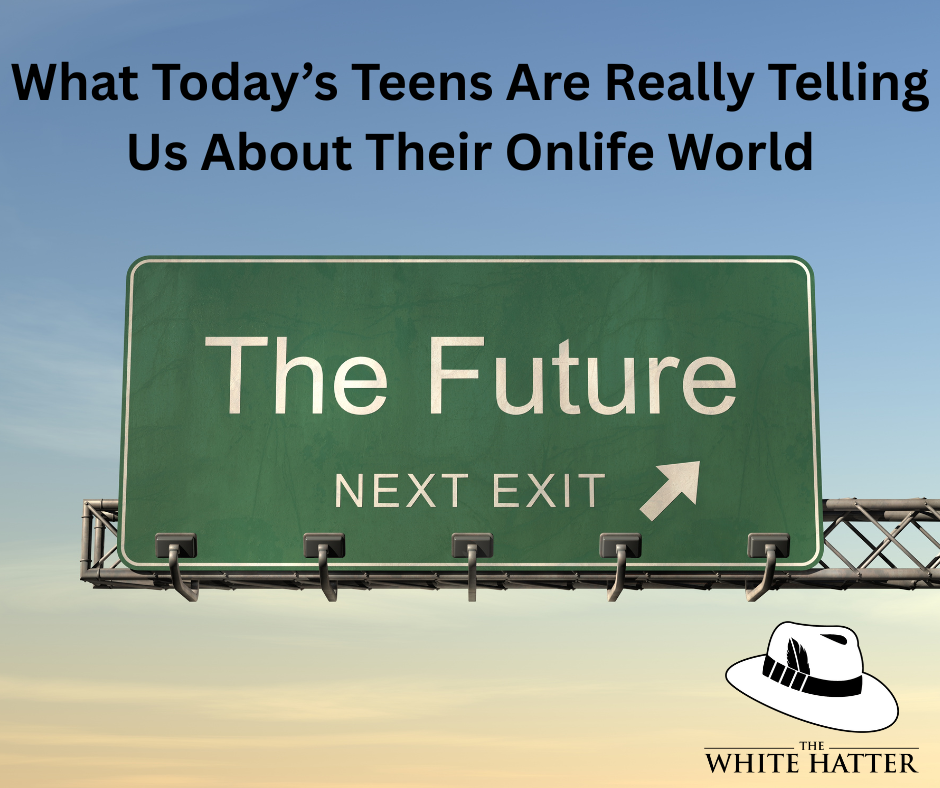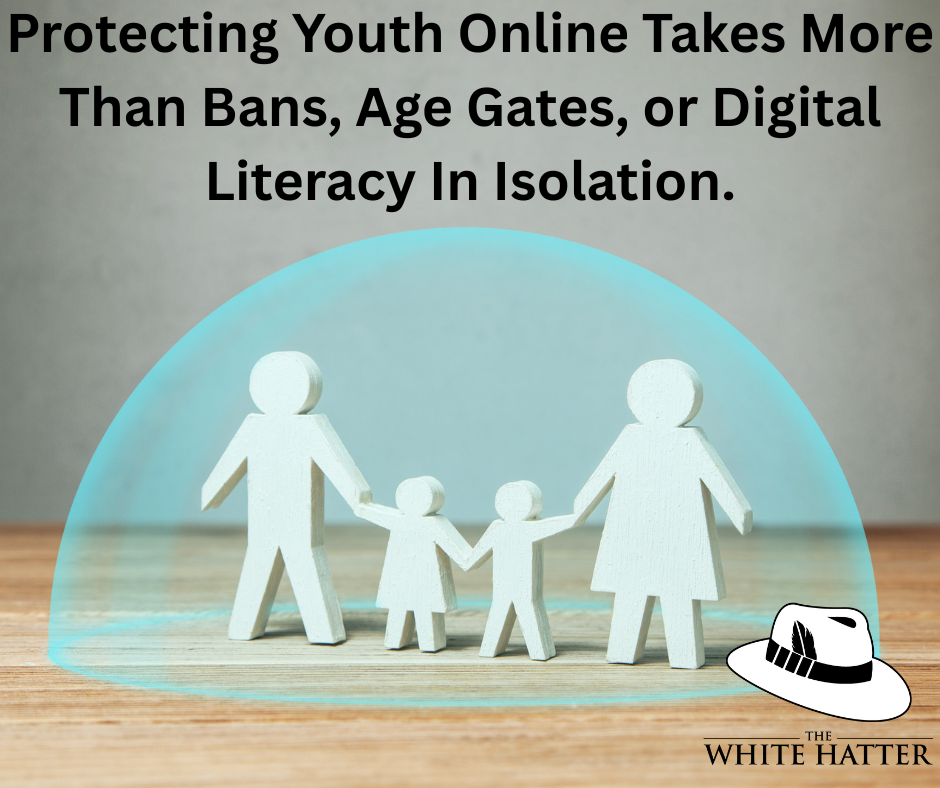Why Online Radicalization Deserves Every Parent’s Attention: The Rise Of The Neo-Nazi Recruiter
- The White Hatter

- Nov 19, 2025
- 4 min read

At The White Hatter, we have always been committed to speaking honestly about both the benefits and the risks that come with technology, the internet, and social media. Parents, caregivers, and educators often ask us what we see as the most pressing online dangers facing youth and teens. Many know the familiar threats: such as online predation and exploitation, exposure to pornography, sextortion, digital peer aggression, sexism, misogyny, drugs, and the growing influence of the manosphere.
All of these issues matter. Yet if we had to identify one threat that increasingly demands our focused attention, it is the rise of online radicalization, and the way extremist and hate-based groups are now using digital platforms to recruit, manipulate, and influence youth.
This isn’t a new phenomenon. Darren faced Neo-Nazi recruitment efforts firsthand while policing in the Greater Victoria region during the late 1980s and early 1990s. Back then, these groups operated in the shadows. Their outreach was limited, their visibility was low, and their influence was constrained by geography. That is no longer the case.
Today’s extremist movements have stepped out of the shadows and into the digital spotlight. The current political environment in both Canada and the United States has emboldened these groups. They are strategically capitalizing on cultural and political tensions, immigration debates, identity conflicts, mistrust of institutions, and economic anxiety, to push their narratives to wider audiences, increasingly that wider audience is our kids.
What used to be underground pamphlets and whispered recruitment meetings has transformed into livestreams, algorithm amplified content, and real time interactions on gaming and chat platforms. These groups understand the online environment extremely well. They recognize that digital spaces are where young people socialize, experiment with identity, and seek belonging. They exploit that vulnerability.
One individual who has come to our attention is Jon Minadeo, also known online as “Handsome Truth.”
Minadeo is a 43-year-old American white supremacist and the founder of the Goyim Defence League (GDL), an organization widely recognized by researchers as Neo-Nazi, aggressively antisemitic, and increasingly skilled at modern online propaganda.
What sets Minadeo apart is not only his ideology, but his ability to effectively weaponize technology to spread it. He uses live streaming, chat platforms, and apps popular with youth to inject extremist messaging directly into their social environments. If Andrew Tate dominates the online manosphere, Minadeo dominates the online far-right Neo-Nazi online ecosystem.
News Channel 5 in Nashville recently aired a detailed report showing how Minadeo uses online chat platforms as a pipeline to reach youth. (1) Although the video provides important insight, we must warn the reader who want to watch it, that it contains explicit racist language, harassment, and violence that may be seriously distressing for some viewers. Having said this, it does provide a clear picture of what the threat is, and how this recruiter and hate propagandist, and others like him, operates.
In the footage, the streaming platform being used appears similar to OMETV, but it is crucial for parents to understand that this behaviour is not limited to one site. Streaming Apps like Bigo, EmeraldChat, Monkey, Yubo, and many others are built for rapid, anonymous, and often unsupervised streaming audio and video interactions. Streaming apps gives bad actors direct, unfiltered access to young people.
Across multiple interactions shown in the video, several consistent themes emerged:
Most youth were alone in their bedrooms.
They were on phones or computers without any oversight. Bedrooms create privacy, and privacy creates opportunity for harmful interactions to go unseen.
Many appeared to be under the age of 18.
Extremist groups know that youth are impressionable and more open to identity-shaping narratives. They target them deliberately.
Both teen boys and teen girls were engaged.
While boys are often assumed to be the primary targets of extremist networks, these groups deliberately reach out to girls as well, often under the guise of acceptance, belonging, or shared humour.
Groups of youth were frequently involved.
This matters for one simple reason, even if your child isn’t allowed online access at home, they may be exposed at a friend’s house where rules differ. Digital risk isn’t contained by your own household boundaries.
If there is one reason to reconsider giving your child unrestricted internet access behind a closed bedroom door, this may be it. Extremists do not need to come to your neighbourhood, your school, or your community. They can enter through your child’s screen in seconds. They do not need to convince your child in person. They simply need to catch them during a vulnerable moment online.
This article is about parents, caregivers, and educators staying aware and more vigilant of a very real and growing threat that is increasingly directing its attention toward young people. Parents do not need to panic, but they do need to stay informed, create open communication, set healthy boundaries, and understand the digital spaces their youth or teen occupy.
Online radicalization is not just a political issue, it’s a youth-safety issue, it’s a digital-literacy issue, and it’s a parenting issue. The more we understand how these groups operate, the more effectively we can help young people stay safe, think critically, and recognize harmful messaging before it takes root.
Lastly, keep phones, computers, gaming consoles, and any other internet connected devices out of your child’s bedroom. This one important step can make a meaningful difference in reducing their exposure to these and other online risks.”
Digital Food For Thought
The White Hatter
Facts Not Fear, Facts Not Emotions, Enlighten Not Frighten, Know Tech Not No Tech
Reference:














